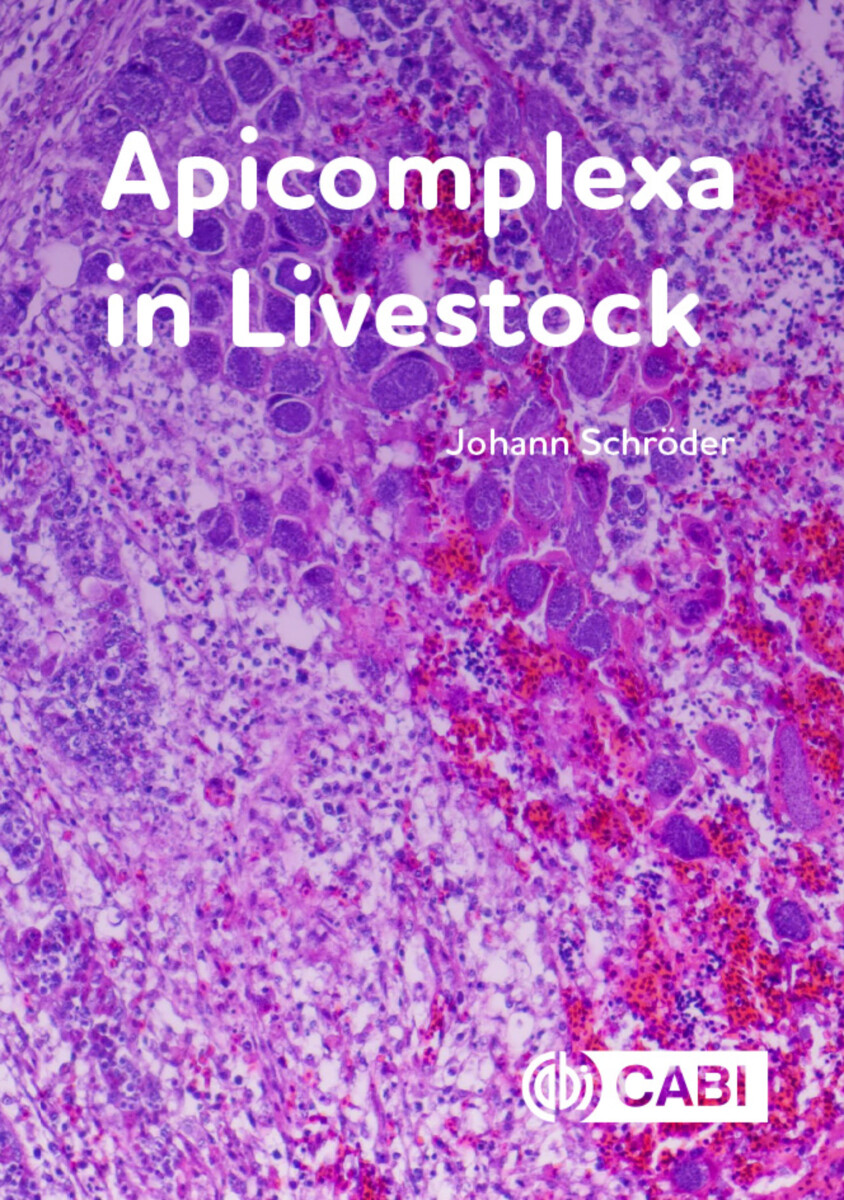Apicomplexa in Livestock
- Publisher
CABI - Published
19th October 2023 - ISBN 9781800621961
- Language English
- Pages 208 pp.
- Size 6" x 9"
The Apicomplexa is a globally prevalent group of parasitic protozoa that cause disease, from malaria in humans to livestock diseases such as coccidiosis, babesiosis (Red Water, Tick Fever) and East Coast Fever. With significant economic impacts, a number of Apicomplexa are also zoonotic, leading to grave potential public health consequences.
Infection prevention efforts by immunization or management of arthropod vector infestation have not been universally successful, and can have knock-on effects such as pollution of the environment and human food chain, and development of insecticidal or acaricidal resistance. This book highlights the similarities and differences between the various Apicomplexa infections, identifying those of greatest significance and suggesting sustainable approaches to better manage their impact on livestock productivity.
The book:
- Reviews Australian livestock as a case study, but highlights global applications, biosecurity concerns and lessons learned;
- Covers Apicomplexa-caused disease across cattle, pigs, poultry and sheep;
- Considers human health and environmental impacts, and how sustainable management methods can better outcomes for all.
1. Introduction – Setting the Scene
2. Herbivore and Omnivore Coccidia
3. Carnivore 'Coccidia'
4. Vector-borne Apicomplexa
5. Identification and Diagnosis
6. Prevention
7. Treatment - Chemicals Against the Apicomplexa
8. Discussion and Conclusions
Johann Schröder
Johann Schröder studied for a Bachelor of Veterinary Science and Master of Veterinary Medicine in Parasitology in Onderstepoort, South Africa. After posts at Merck (1975 - 1981) and Bayer (1987 - 2006), as well as a 5-year stint in private contract research managing product development and technical support of veterinary parasiticides, Schröder joined Australian Wool Innovation and Meat and Livestock Australia in 2006. He has been an editorial board member for Veterinary Parasitology since 2007, and retired in 2021.


